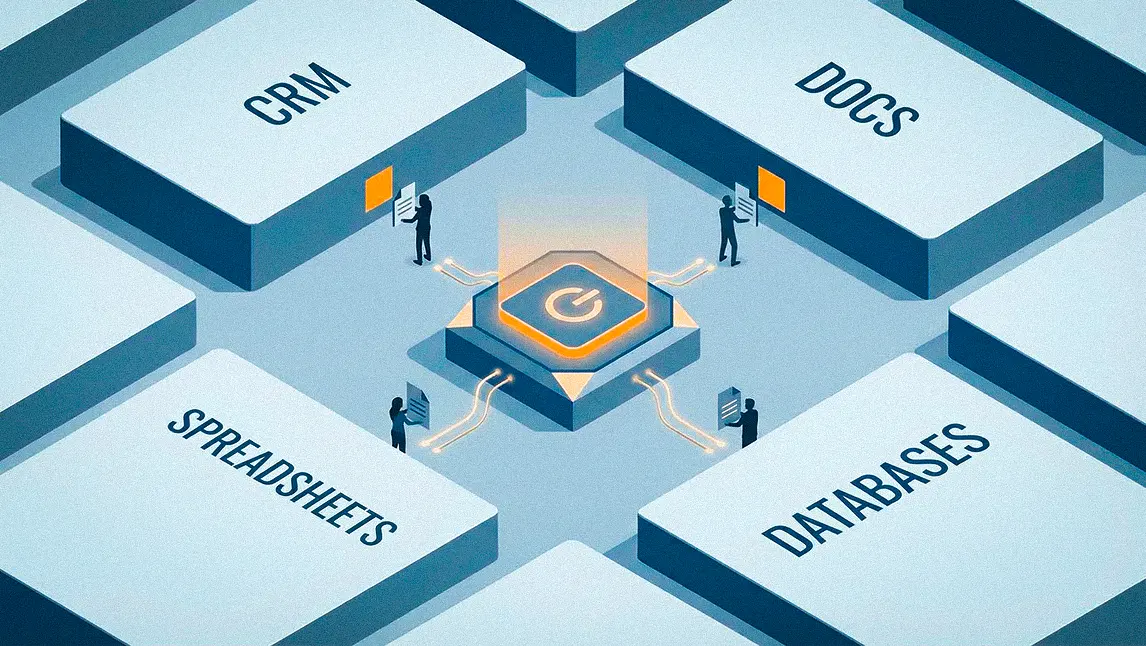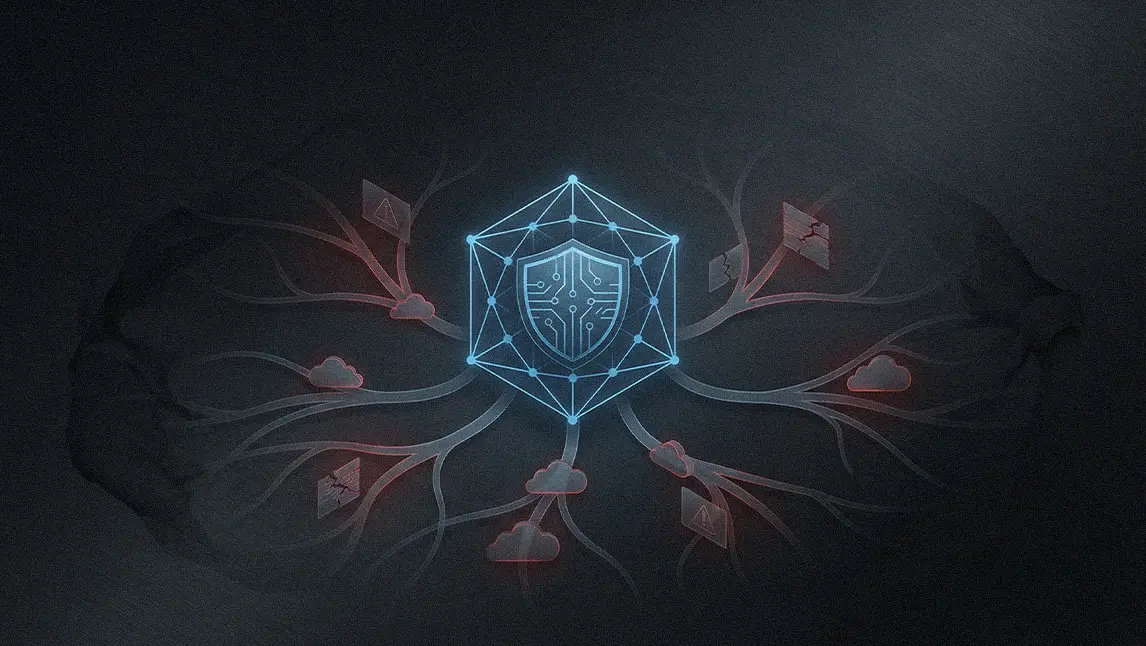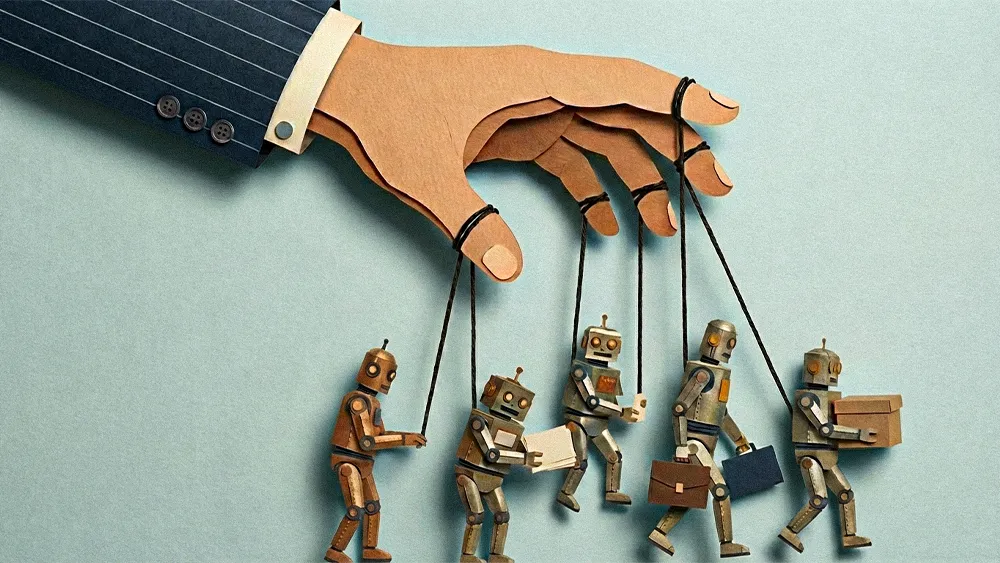For years, the golden rule of enterprise AI has been the same: clean data is king. To unlock the value of intelligent systems, leaders were told to invest in massive, time-consuming, and costly data-cleansing projects. Now, with billions of dollars in waste hiding in plain sight across global supply chains, a new, counterintuitive approach is emerging to flip this paradigm on its head.
To learn more, we spoke with Paul Noble, founder and Chief Strategy Officer of Verusen, a leading SaaS platform provider for AI-optimized MRO (Maintenance, Repair & Operations) supply chains. Founded on the principle that the 'bad data in, bad data out' model is outdated, his firm now manages over $12 billion in spend without the need to first clean a single data record. The secret, Noble said, is for leaders to stop waiting for 'data perfection' before they act.
Old data, new tricks: In Noble's view, the future belongs to those who can extract value from the imperfect systems already in place, not those who build entirely new ones. Because clean data is a prerequisite for traditional software, Noble opted instead to train AI models on specific parts of the supply chain. The goal was to drive better outcomes for MRO and indirect materials without disrupting the data systems they relied on. As his philosophy gained momentum, the rest of the industry started to catch on. "Data perfection is the biggest myth holding back enterprise AI. Leaders who wait for clean data will be left behind. Clean data is valuable, but it’s no longer a prerequisite—you can act now, improve along the way, and still deliver bottom-line impact."
For Noble, the problem wasn’t the data itself, but the 'data disparity' created by humans. Every time a company buys a physical product, its employees create a new, slightly different digital description for it. Repeating the process across enterprise teams and systems, Noble explained, inevitably creates a tangled web of redundant SKUs, mislabeled and duplicate materials, and ultimately dead stock. The hidden waste might not show up on a procurement spreadsheet, but it likely has a significant financial and environmental footprint.
The circularity gap: "Every enterprise sits on dead or obsolete inventory that could be useful to someone if they only knew it was there," Noble said. "Consider Coke and Pepsi. Even though they buy a lot of the same materials, there isn't a way for them to share that inventory anonymously. Just having that anonymous visibility across marketplaces is helpful when awareness is king."
But if solutions exist, why are so many companies still stuck? According to Noble, the industry has been trapped in what he described as a gray area for the last decade. Even though most leaders know that better, more sustainable, and scalable options are available, many feel too paralyzed to act.
A state of perpetual limbo: Even when alternative materials or items are available, the effort of moving them through outdated processes feels too great for too little immediate gain. "We’ll identify an alternative item and find it for sale, but then the client has to go pick, pack, and ship it. They don’t want to do that for 20 cents on the dollar; it becomes easier to do nothing. We've basically been in this purgatory for the last decade where better, sustainable solutions exist, but the effort feels too high."
The real blocker: It also ties back to finance and accounting practices. "Most organizations avoid dealing with non-moving inventory because it means taking a hit on the balance sheet," Noble explained. "The mindset is, 'We’ll have to write that off, and we didn’t plan reserves for it.' No one wants to absorb the loss—so the waste just grows every year."
The limitations of legacy systems are to blame for this cycle of inaction, Noble said. While today's AI solutions target waste reduction and unlock trapped value, a more radical transformation is on the horizon. According to Noble, the long-term solution likely involves a complete re-architecture of the systems themselves.
Building organizational memory: “What we're really doing is transferring knowledge from individuals into deep learning and institutional knowledge. When a storeroom manager leaves, their reasoning—'why do I inventory this, why do I buy that, what do I monitor'—no longer disappears with them. That knowledge becomes part of the system, so the next person is immediately productive."
A two-horizon future: Horizon one is happening now, as AI delivers measurable results from messy, imperfect data. Horizon two, still a decade away, is a radical shift: entirely new ERP platforms, many already being incubated by accelerators like Y Combinator. "We’re still 10-plus years out from that," he said, "but what’s happening today is progress. Leaders are now able to achieve far more outside of a single project than they ever could before."
But none of this progress is possible without trust. Beyond automation, the promise of AI is the transfer of institutional knowledge into a permanent, intelligent system, according to Noble. "When organizational memory outlasts any single employee, that's the moment a company’s collective experience can become its most valuable asset."









